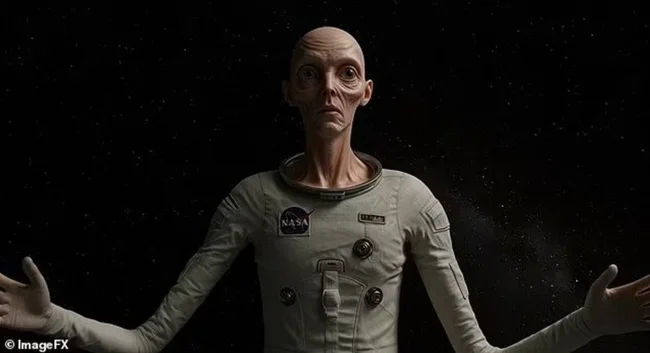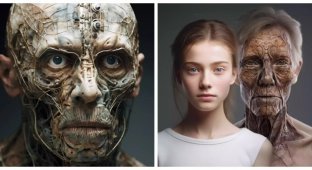Let's look into the future: the appearance of a person in 1000 years (12 photos)
Looking back at our primate ancestors, you might think that modern humans are the pinnacle of evolution. But many scientists believe that this is just the beginning of the story. Thanks to technology, space travel and climate change, the world around us is changing rapidly, and experts believe that we will change with it. 
MailOnline, using Google's ImageFX AI image generator, looked to the predictions of leading scientists to imagine how the human race might evolve. 

People will be shorter 
Professor Mark Thomas, an evolutionary geneticist at University of California, said: "Evolution favours fertility - how many children are born."
This means that people who have more children are more likely to pass on their genes. Interestingly, some scientists have suggested that this could lead to shorter people in the future.
Early puberty allows for more offspring, but this seems to come at a cost to height.
Professor Thomas said: "This is one of the arguments for why you find pygmy populations in many parts of the world. They have relatively short lives because the conditions in the rainforest are quite harsh. So they sacrifice physical development for sexual maturity."
If people who mature earlier have more children, then the genes that are responsible for earlier puberty and shorter height may spread through the population. 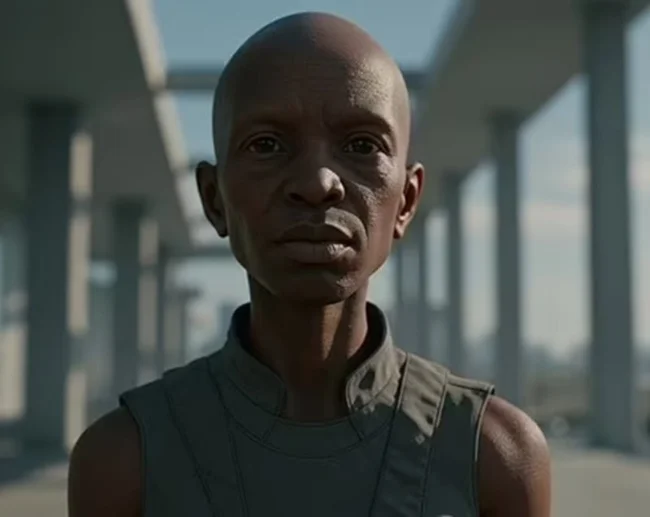
More Attractive 
As fewer people die, the number of children will become the main factor in evolution. Ironically, this will make men more attractive.
Professor Thomas says: "In nature, it is the females who make the choice. However, in strong patriarchal systems, which are common in many countries around the world, men often take on much of the responsibility and control over the situation."
"Fortunately, we are moving toward a world where women make choices, and they will choose men they like for one reason or another: intelligence, success, good looks, or physical strength. And as women's choices become more diverse, we can expect these qualities to become increasingly important."
So, in the next few thousand years, as more attractive men are more likely to pass on their genes, humanity may become even more beautiful.
Darker Skin and Mixed Race 
One of the most noticeable changes that experts believe humanity will see in the future is mixed race.
For most of human history, different populations remained relatively isolated from each other. However, today, people of different ethnicities are increasingly mixing with each other.
Dr Jason Hodgson, a senior lecturer in bioinformatics at Anglia Ruskin University, told MailOnline that population structure could collapse in the future.
"The current trend, at least in the US, is that interracial marriage is becoming more common. If we assume that trend continues, then the population structure will become less distinct."
At a population level, this could lead to less diversity.
"If we're talking about one of the few traits that varies across a population - skin colour - then most people are going to be a little bit dark."
Professor Thomas points out that examples of this include the modern populations of Brazil or Mauritius, where many ethnic groups have been intermingling for generations.
Technologically advanced 
New advanced technologies may enable humans to actively participate in their own evolutionary process.
As Dr Hodgson points out: “I doubt that evolution will happen naturally in the distant future. We now have the technology to edit genes using CRISPR-Cas9. This gives us the ability to alter the genome to a large extent.”
While the global community currently considers this unethical, future generations may not be so strict.
There are already companies in the US that offer services to create the “perfect child.” These companies claim to be able to help parents choose traits such as height, intelligence, and gender for their unborn child.
If these technologies are allowed to spread unchecked, genetic traits that were once rare could become common.
Dr Hodgson says: “In the distant future, we could see significant changes even within a single generation.”
For example, people will be able to give themselves darker skin with a high melanin content to protect themselves from harmful ultraviolet radiation.
Fashion and cultural trends will also influence people's appearance.
Dr. John Hawks, an anthropologist at the University of Wisconsin-Madison, believes: “Cultural and technological changes will almost certainly be stronger than genetic ones. Many of them affect appearance. One can imagine color-changing tattoos, various body modifications, and new ways of expressing oneself that arise from the merging of the body with technology.”
Smaller Brain 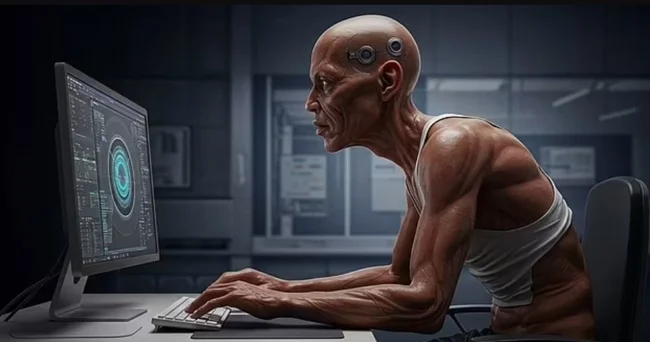
Professor Robert Brooks, an evolutionary biologist at the University of New South Wales in Sydney, believes that the human brain will become smaller over time.
Professor Brooks' theory is that as computers become more efficient at performing computational, factual and social tasks, the advantage of a larger brain will become less significant. At the same time, the increased energy costs and birth risks associated with larger heads in babies will remain relevant.
Dr Nicholas Longrich, a paleontologist and evolutionary biologist at the University of Bath, writes for The Conversation: “We may be becoming a kind of domesticated ape, but curiously domesticated by ourselves. Sheep have lost 24 per cent of their brain mass since domestication, cows 26 per cent, dogs 30 per cent. That’s worrying.”
Hunched backs and crooked arms 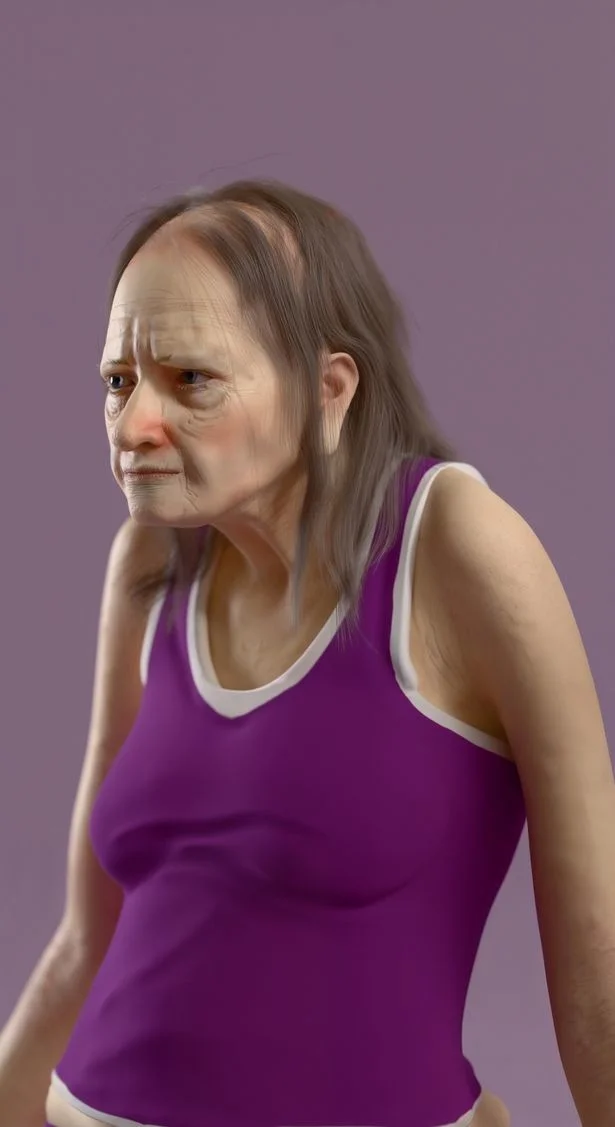
Spending too much time on computers and phones can lead to health problems such as curved spines and hand development.
Dr. Sophie Bostock has previously warned that lack of sleep can have serious consequences for the body. She predicts that within 25 years, the average person will suffer from chronic back pain, noticeable hair loss, loose skin, swollen legs, and red, puffy eyes.
However, these changes will not occur at the genetic level, as there will be no evolutionary advantage to pass them on to future generations.
Space Adaptation 
If a portion of humanity were to go into space, it is possible that this group would evolve separately from the main population remaining on Earth.
Dr John Hawkes, an anthropologist at the University of Wisconsin-Madison, told MailOnline: 'The human population on Earth is huge and diverse. However, with long-term space travel, there is the potential for small founder populations to emerge and remain isolated for millennia. After a thousand-year journey across the galaxy, establishing a sustainable human population in another star system would be difficult. However, such a scenario opens up the possibility of speciation.'
On Mars, humans would only receive 66 per cent of the sunlight and 38 per cent of the gravitational force they experience on Earth.
To adapt to space, humans could become taller and develop longer arms to better cope in low gravity. Even on the International Space Station, astronauts could grow around three per cent in the first few days as their spines stretch in low gravity.
Just as happened during the migration of ancient humans into northern Europe, future generations may become paler to maximize the amount of vitamin D they get from low light.
Human eyes could become larger and more sensitive to see in low light conditions, or be enhanced with technological aids. 